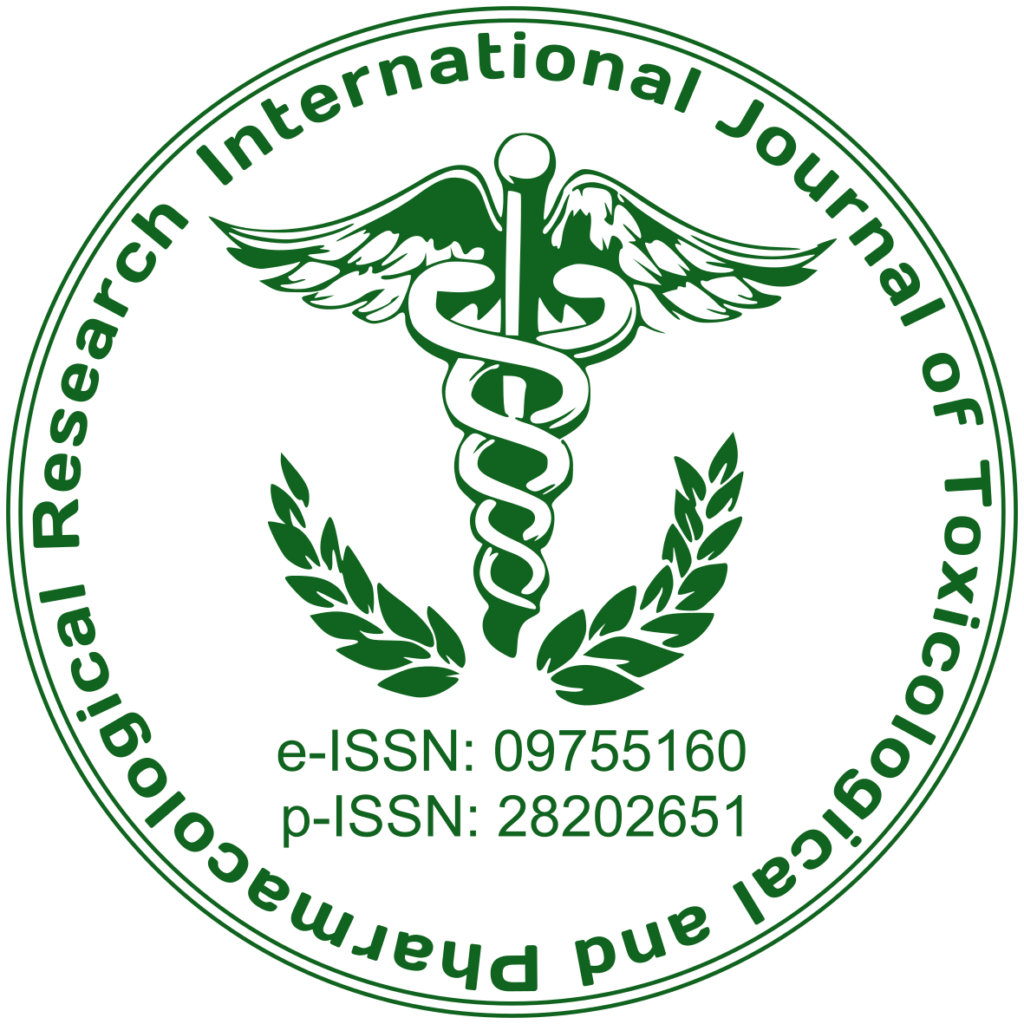Vijaya Bhaskar Reddy. M, P. Sreenivasula Reddy, P.Sasikala, Y.V. Kishore Reddy
International Journal of
Toxicological and Pharmacological Research
e-ISSN: 0975 5160
p-ISSN: 2820-2651
Peer Review Journal


1. Transplacental and Lactational Exposure of Arsenic to Mice: Effect on Steroidogenic Enzymes and Hormones of Male Reproduction
Vijaya Bhaskar Reddy. M, P. Sreenivasula Reddy, P.Sasikala, Y.V. Kishore Reddy
Abstract
The present study aimed to assess the possible interference of sodium arsenite in F1 generation male mice with special reference to steroidogenic marker enzymes. Mice were devided in to two groups. The mice in first were served as control and recived normal tap water. Sodium arsenite administered orally to mice in the second group during pregnancy and lactation at a dose level of 0.4 ppm and analyzed for spermatogenesis and steroidogenesis in next generation adult male mice. The activity levels of selected steroidogenic marker enzymes (3βhydroxysteroid dehydrogenase and 17β-hydroxysteroid dehydrogenase) decreased significantly in mice exposed to sodium arsenite. The circulatory levels of testosterone decreased significantly in experimental mice with an increase in follicle stimulating hormone. The decreased levels of testosterone with elevated follicle stimulating hormone and lutenizing hormone levels in mice exposed to arsenic during early stages of development are indicative of intact pituitary-testicular axis. The results indicate that exposure to arsenic during early stages of development suppresses the male reproduction in adults. Thus, we conclude that the potential of reproduction is programmed, to some extent, in the early stages of development and hence any toxic insult during embryonic development and lactation suppresses male reproductive potential in adulthood.